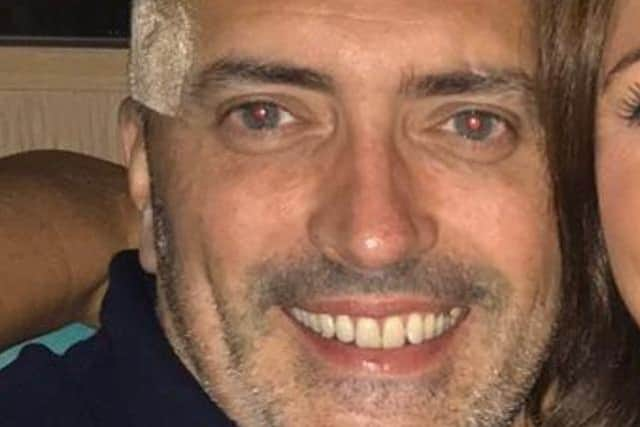Edinburgh man with incurable cancer 'regrets not pestering GP' after diagnosis took over a year
Dave McGovern, from Clermiston, visited his GP several times during the Covid-19 pandemic, complaining of pain in his ribs and back.
But it was not until a bout of pneumonia and pleurisy led to him getting a series of blood tests that the 47-year-old father of two was diagnosed with myeloma, the third most common type of blood cancer.
Advertisement
Hide AdAdvertisement
Hide AdThe disease is particularly difficult to diagnose as its symptoms, including pain, fatigue and recurring infection, are often linked to general ageing or minor conditions.


While incurable, it is treatable, and Mr McGovern started treatment a week after his diagnosis in April 2021. He is soon due to undergo high-dose therapy and stem cell transplantation.
Mr McGovern, who works for Lloyd’s Bank, has two daughters, aged 10 and 15.
He wants to raise awareness so professionals and those with undiagnosed myeloma are quicker to recognise symptoms.
“I feel my diagnosis could have been caught earlier,” he said.
“In hindsight I should have pestered my GP a lot of sooner. I guess it’s in my nature not to pester. I just thought, ‘It’s old age, I’ve mucked about with the girls’.
"I regret not pushing harder to get to the bottom of these things. If I had heard of myeloma, I would have mentioned it to the GP but, unfortunately, I hadn’t.”
GPs play a “major role” in diagnosis, according to Suzanne Renwick, Head of Clinical Practice Services at Edinburgh-based charity Myeloma UK.
Advertisement
Hide AdAdvertisement
Hide Ad"With no lump, no single symptom or a single place to scan it is notoriously difficult to diagnose,” she said.
"As myeloma advances, it becomes more difficult to treat and more likely to cause complications, such as kidney failure and spinal compression.
"Early diagnosis is key to ensuring myeloma patients have the best possible treatment options and quality of life.
Edinburgh-based GP Dr Judith Richardson, who also has myeloma, stressed the importance of other GPs recognising the disease.
"I’m sure I was diagnosed early because I was aware that my vague signs and symptoms could be serious,” she said, adding that it would have been “easy” for her GP to have ignored these if she had not already run a urine test herself.
A message from the Editor:
Thank you for reading this article. We're more reliant on your support than ever as the shift in consumer habits brought about by coronavirus impacts our advertisers.
If you haven't already, please consider supporting our trusted, fact-checked journalism by taking out a digital subscription.
Comments
Want to join the conversation? Please or to comment on this article.
